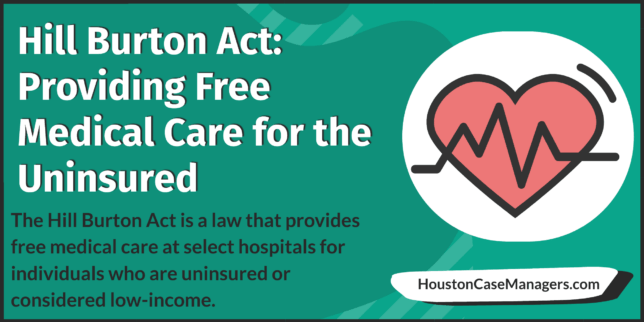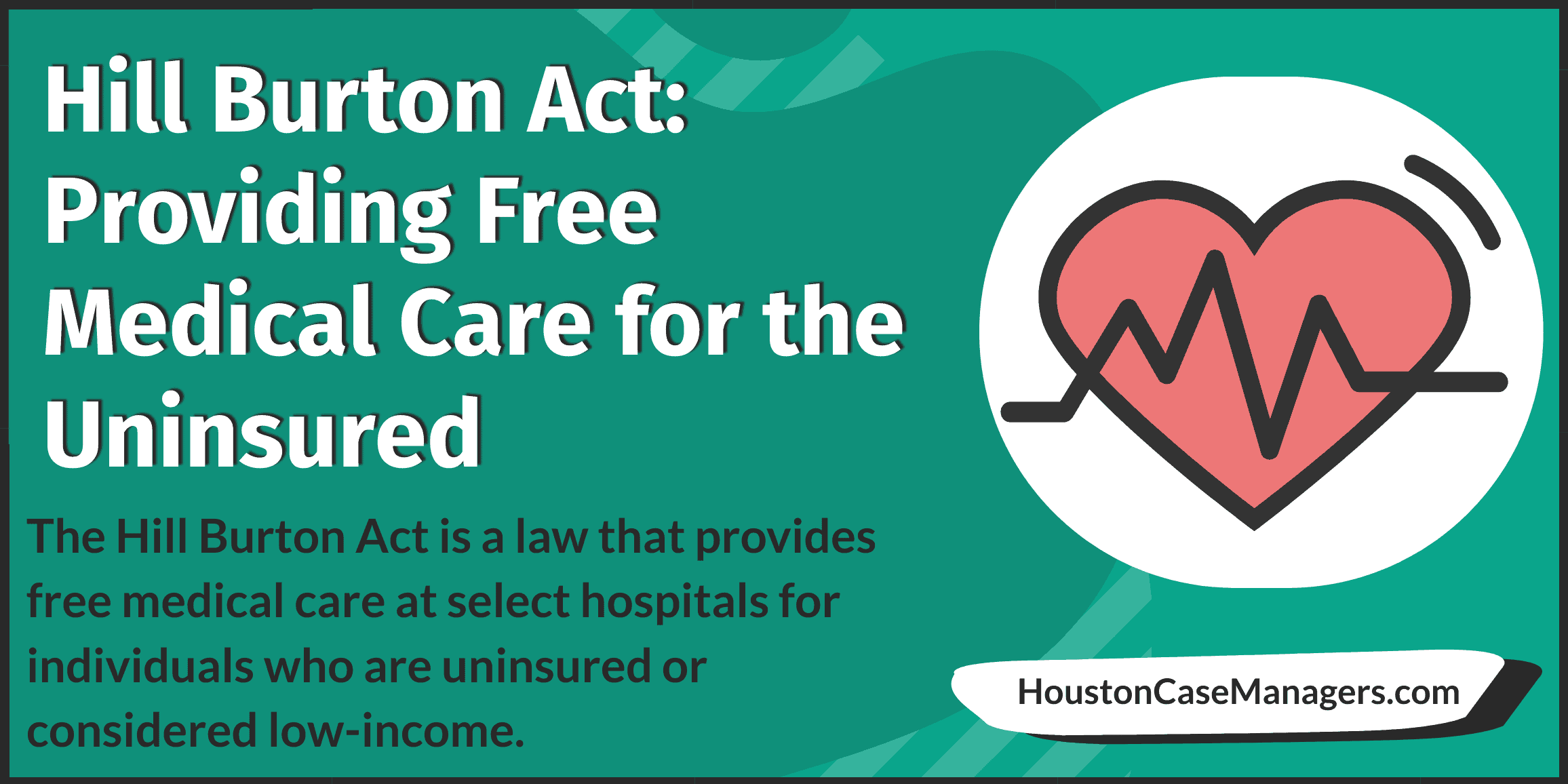Hill Burton Act: Providing Free Medical Care for the Uninsured
It is my hope that you never have to use this resource, however, if you are ever hospitalized without insurance the information I am about to tell you about may very well help you to save lots of money in medical expenses!
The information I am referring to is called the Hill Burton Act…
Although you probably have never heard of this act, it’s been around since 1946 and paid the medical bills of countless patients who otherwise couldn’t have afforded their medical bills.
In this guide I will tell you about the Hill Burton Act’s history, it’s purpose, who can benefit from it, and where you would need to go to apply.
History of the Hill Burton Act
This U.S. law was passed in 1946 by two senators named Lister Hill and Harold Burton.
Following World War II there was a great need for more hospitals in the country and this act (then called the Hospital Survey and Construction Act) was created to help pay for the construction of those hospitals.
Federal funds were given to local communities to build much needed hospitals with the trade off being that these hospitals would provide free services to low-income residents regardless of race, color, sex or national orgin. Many of the promises to serve the community were not upheld for about 30 years. During the mid 1970’s lawyers who represented low-income residents began to sue hospitals for failing to abide by the Hill Burton Act.
In 1975 this act was amended and the name changed to Title VI of the Public Health Service Act.
In the late 90’s the funding for the program stopped, however, there are still roughly 130 Hill Burton facilities that still provide free healthcare to the public.
Types of Hill Burton Hospitals and Healthcare Facilities
In the previous section I mentioned that there are still about 130 Hill Burton funded facilities. Those facilities range from regular hospitals, acute care hospitals, nursing homes, public health centers, and rehab facilities.
The Houston area has 3 healthcare facilities that receive Hill Burton funds which are:
- LBJ Hospital – 5656 Kelley Street, Houston, TX 77026 – 713.566.5100
- Thomas Street Clinic (HIV/AIDS patient clinics) – 2015 Thomas Street, Houston, TX 713.873.4000.
- Gulf Coast Health Center – 2548 Memorial Blvd, Port Arthur, TX 77640 – 409.983.1161
You can see the complete list of Hill Burton facilities by going here.
Hospital Mandates Under this Program
In exchange for federal funding the Hill Burton law requires facilities to provide the following services to the public:
- Offer emergency services to individuals living in the service area, even if they cannot afford medical care.
- They must provide non-emergency medical care at the facility to anyone regardless of their race, color, national origin or any other factor not related to their ability to pay.
- Participate in Medicare and Medicaid programs unless they are ineligible.
- Post its community service obligations in English, Spanish and any other languages spoken by at least 10 % of the households in the area.
- Community service obligation does not require a Hill Burton facility to make non-emergency services available to anyone who is unable to pay.
- Hill Burton Act will also apply to individuals working in the service area of the health care facility.
- Seek reimbursement for services with principal state and local third-party payers that provide reimbursement that is not less than the actual cost of services.
- The Hill Burton law will not cover Medicare cost-sharing but it can help with Medicaid copayments.
Who Qualifies Free Medical Care?
In order to receive help from the Hill Burton law you must be considered low-income. Below is a table that outlines Federal Poverty Guidelines.
| Household Size | Monthly Income Limits |
| 1 | $12,760 |
| 2 | $17,240 |
| 3 | $21,720 |
| 4 | $26,200 |
| 5 | $30,680 |
| 6 | $35,160 |
| 7 | $39,640 |
| 8 | $44,120 |
In order to receive potentially free medical care at a Hill Burton facility you will have to show proof of income.
Applying for the Hill Burton Program
To apply you will need to speak to someone in admissions at a Hill Burton hospital or healthcare facility. This individual will screen you to determine if you qualify for free or reduced cost medical care at their facility.
You can apply for the Hill Burton program before your medical visit, after, or even once you’ve received a letter from a collection agency.
One thing that you should remember is the Hill Burton Act only covers the facility costs, not bills from a private doctor.
If You are Denied Hill Burton Coverage…
You can appeal this decision by sending a complaint to the following address:
Director, Division of Poison Control and Healthcare Facilities
5600 Fishers Lane
Room 8W
Rockville, MD 20857
Email: DFCRCOMM@hrsa.gov
Conclusion
The Hill Burton Act is not accepted at every hospital, therefore it’s a good idea to check this list of facilities to see if there are any in your area. If you find any, make a mental note in the event you need medical services, so you can call them to learn about potential Hill Burton funds that are available.
Due to the limited amount of hospitals who receive Hill Burton funding it is a long-shot that you’ll receive free treatment via this act, however, it is still worth a try especially if you are uninsured and live near one of the facilities.
A better option may be to look into Medicaid Retroactive Coverage. This is a program offered by your state’s Health and Human Services Commission that can pay for medical coverage that you received up to 3 months ago. Unlike the Hill Burton Act there is not a “network” of hospitals that you must receive treatment in.
Nick Bryant is the author of Understanding Healthcare Is Half The Battle and a Senior Counselor with 13+ years of experience working in community health and mental health. He enjoys spending time with his family, watching WWE on Friday nights, and working toward a Google Data Analytics certification. If you have additional questions about community resources or government assistance programs, simply leave a comment below and he will follow up as soon as possible.




